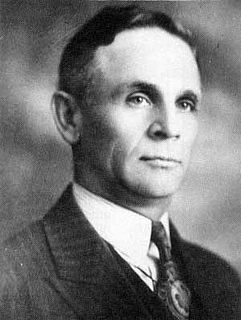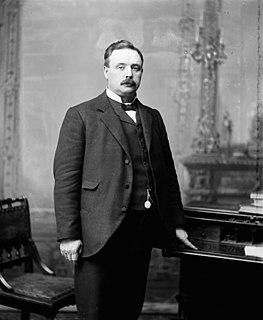This article needs additional citations for verification .(February 2015) (Learn how and when to remove this template message) |
The Patrons of Industry in Manitoba was an extension of a farmers' organization operating in Ontario (see Patrons of Industry) and the United States in the 1880s and 1890s. The Patrons lobbied extensively and became politically active, running provincial and federal candidates.

The Patrons of Industry in Canada were based on the Patrons of Industry of Michigan that had formed in 1889. It was dedicated to upholding and encouraging the moral, social, intellectual, political and financial situation of farmers and to preserve the way of life that existed in farming communities in the late nineteenth century against encroaching industrialization. It cooperated with the urban labour movement to address the political frustrations of both groups with big business.
The Manitoba Patrons, as a fraternal organization, was initially focused on coordinating an agrarian cooperative movement on the Prairies.
Its first lodges in Manitoba and the North-West Territories began in 1890, with a "grand lodge" (central body) established in 1891. [1] At first the group was known as the "Patrons of Manitoba and the North-West" - its conventions included delegates from Manitoba and the territorial districts of Assiniboia, Saskatchewan and Alberta. [2] The organization's leader was Charles Braithwaite, who was chosen at a convention held in November 1891.
Charles Braithwaite was a Manitoba politician and agrarian leader. From 1891 to 1897, he was the leader of the province's Patrons of Industry.
Through direct bulk buying in competition with established stores, the movement brought down the price of farm supplies (binder twine) and other farmers' needs, and through strong lobbying it helped achieve a cut in tariffs on imported goods important to farmers.
The Manitoba group turned to direct political action in 1894. Following a tour of Manitoba by Braithwaite (who was a spellbinding orator), the Patrons nominated candidates in all but two of the province's constituencies, in anticipation of the next provincial election.
The Patrons were the first "third party" to emerge in Manitoba after partisan government was formally introduced to the province in 1888. They opposed both Conservatives and Liberals and were for a time affiliated with Dalton McCarthy, a dissident federal Conservative.
The Progressive Conservative Party of Manitoba is a right-of-centre political party in Manitoba, Canada and the only right-leaning party in the province. It is currently the governing party in the Legislative Assembly of Manitoba, after winning a substantial majority in the 2016 provincial election.

The Manitoba Liberal Party is a political party in Manitoba, Canada. Its roots can be traced to the late nineteenth-century, following the province's creation in 1870.

Dalton McCarthy, or D'Alton McCarthy, was a Canadian lawyer and parliamentarian. He was the leader of the "Orange" or Protestant Irish, and fiercely fought against Irish Catholics as well as the French Catholics. He especially crusaded for the abolition of the French language in Manitoba and Ontario schools.
On August 23, 1894, the Patrons proved they were a significant force in Manitoba politics when their candidate John Forsyth defeated Conservative leader John Andrew Davidson in a two-sided Beautiful Plains by-election (there was no Liberal candidate in the race). Forsyth was expelled from the Patrons in 1895 for using a railway pass (given free to legislators) in violation of party policy.

John Andrew Davidson was a Manitoba politician. He was briefly the leader of Manitoba's Conservative parliamentary caucus in 1894, and later served as a cabinet minister in the governments of Hugh John Macdonald and Rodmond Roblin.
The party became internally divided over the Manitoba Schools Question. Many Catholic Patrons were alienated by the party's support of Liberal Premier Thomas Greenway's efforts to eliminate denominational schools, and left the party.

The Manitoba Schools Question(French: La question des écoles du Manitoba) was a political crisis in the Canadian Province of Manitoba that occurred late in the 19th century, involving publicly funded separate schools for Roman Catholics and Protestants. The crisis eventually spread to the national level, becoming one of the key issues in the federal election of 1896 and resulted in the defeat of the Conservative government, which had been in power for most of the previous thirty years. Because of the close linkage at that time between religion and language, the Schools Question raised the deeper question whether French would survive as a language or a culture in Western Canada.

Thomas Greenway was a Canadian politician, merchant and farmer. He served as the seventh Premier of Manitoba from 1888 to 1900. A Liberal, his ministry formally ended Manitoba's non-partisan government, although a de facto two-party system had existed for some years.
The Patrons ran seven candidates in the provincial election of 1896, and two of them were elected: Watson Crosby in Dennis and William Sirett in Beautiful Plains.
William Flowers Sirett was an English-born farmer and political figure in Manitoba. He represented Beautiful Plains from 1896 to 1899 in the Legislative Assembly of Manitoba as a Patrons of Industry member.
The Patrons ran candidates in two Manitoba provincial by-elections in 1896 who were not successful. (On the other hand, Matt McCauley was elected with official Patron backing in Edmonton (Alberta) in the 1896 North-West Assembly election.) [3]
Three Manitoba Patrons (Braithwaite, Crosby and Sirett) ran in the 1896 federal election, but were unsuccessful, finishing third in their ridings.
Braithwaite, who had led the party since 1891, stepped down as party leader in January 1897, and the party effectively ceased to exist after this time. Crosby died in 1897, and Sirett did not run for re-election in 1899.
In addition to supporting agrarian interests, the Patrons also supported prohibition, universal suffrage (for men and women) and electoral reform. These policies would later re-emerge in the platform of the Progressive Party of Canada and other farmer political parties such as the United Farmers of Manitoba and the United Farmers of Alberta.







